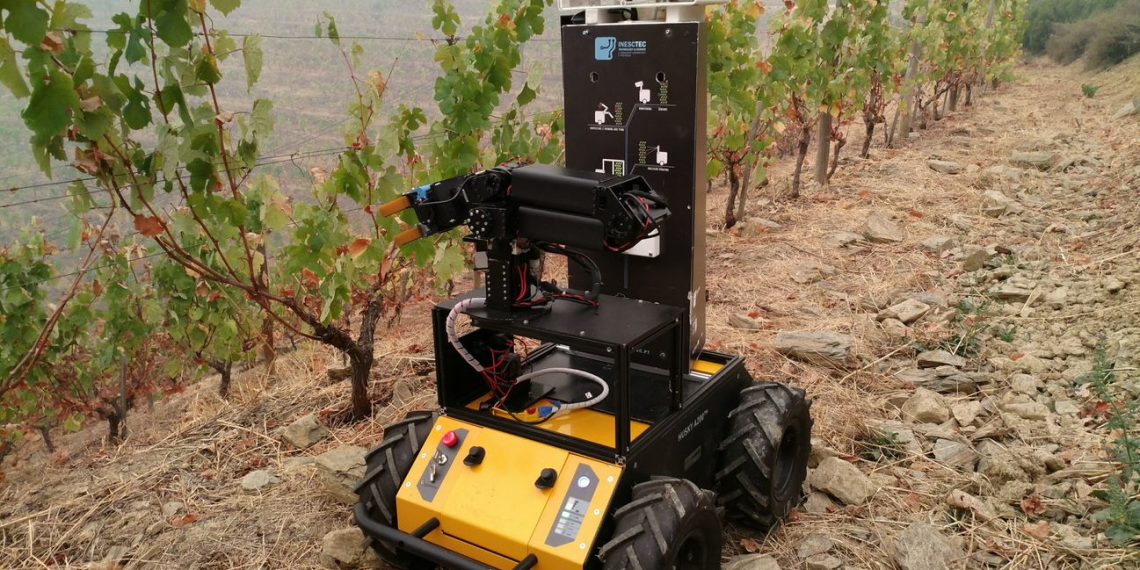INESC TEC’s Centre for Industrial Robotics and Intelligent Systems (CRIIS) will develop an innovative robot to carry out the control and maintenance of row and inter-row vegetation in vineyards/olive groves – which will later be tested through a pilot at a longer timescale. The pilot will be carried out under the European project NOVATERRA, which aims to ensure greater food security, promoting the access to healthier food and minimising the impact of the use of pesticides on the environment.
This pilot will be carried out in two wine-growing regions of the Iberian Peninsula, owned by the companies Sogrape Vinhos SA and Terras Gauda. “The use of robots with innovative tools – in the control and maintenance of row and inter-row vegetation in vineyards/olive groves – will enable a reduction in terms of plant protection products and soil compaction, while improving the soil quality and increasing the availability of existing resources on farms, for other relevant operations. It will also encourage the vegetative growth in the vineyards, which clearly benefits the vineyard and tourism activities”, explained Filipe Neves dos Santos, CRIIS researcher.
Through a series of case studies on olive groves and vineyards in the Mediterranean region, the project aims to develop and test a set of integrated and sustainable strategies, as well as economically viable techniques, for different cultivation systems, in order to eliminate or significantly reduce the use and negative impact of plant protection products (also known as pesticides).
The planned solutions will meet the current market needs, consumer sensitivity, current and upcoming European legislation, as well as the farmers and producers’ varied investment capacity in the Mediterranean region.
The envisaged solutions will be aligned with current market needs, consumer sensitivity, current, and upcoming European legislation, as well as farmers and producers’ diverse investment capacity in the Mediterranean regions. Hence, NOVATERRA will be adapted to different edaphoclimatic regions allowing farmers to improve their Integrated Pest Management strategies for protecting vineyards against downy and powdery mildew, botrytis and grape moth, as well as protecting olive groves against olive leaf spot, fruit fly, olive moth and black scale.
The NOVATERRA consortium, led by the Institute of Agrifood Research and Technology (IRTA), includes 19 entities, namely experts from six countries (Spain, Portugal, France, Italy, Greece and Belgium) with different profiles, who will create, develop, test and explore the different solutions. INESC TEC, the Polytechnic Institute of Bragança, the APPITAD – Association of Producers in Integrated Protection of Trás-os-Montes and Alto Douro, and Sogrape Vinhos are the Portuguese entities part of the consortium.
The NOVATERRA project has received funding from the European Commission’s Horizon 2020 programme (€4,884M), under the agreement number 101000554. The total amount of funds allocated to the project is €5,507M.
The INESC TEC researcher mentioned in this news piece is associated with INESC TEC.




 News, current topics, curiosities and so much more about INESC TEC and its community!
News, current topics, curiosities and so much more about INESC TEC and its community!